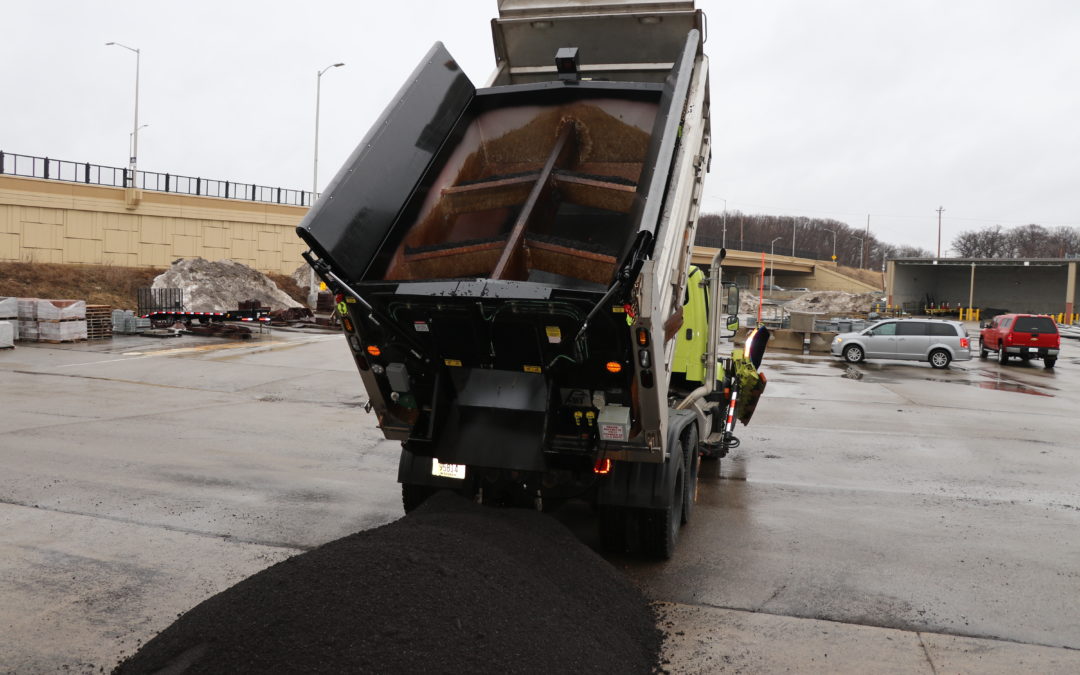Repairing and filling potholes is a never-ending task essential for safe roadways. While any truck can lump asphalt into holes, using the optimal equipment makes the process faster and more cost-effective.
Your crews will spend less time on each repair while producing durable patches that keep roads smooth for years. Read on to learn how to take a strategic approach to choosing a pothole repair truck that maximizes productivity and value
The Importance of Picking the Right Truck
Selecting the ideal pothole truck is about more than pure functionality. You should also consider maximizing efficiency, ensuring crew safety, and getting the greatest ROI. By doing so, you’ll slash the time spent on repairs, curtail operating costs, and make patches that withstand the test of time. The right asphalt hot box choice delivers benefits here and now—and long into the future.
Key Factors to Consider When Selecting a Truck
Choosing the optimal pothole truck requires careful evaluation of several vital factors. Size and load capacity are essential to handle varying material volumes based on job requirements. Opting for a model too small for the task limits productivity.
Along with appropriate sizing, an efficient and reliable heating system forms the crux of quality asphalt repair. The system must maintain the ideal temperature and material consistency for proper adhesion and durability.
The patching method, whether spray injection, throw-and-roll, or semi-permanent, also holds significant implications for repair quality. Select the method that matches site conditions and repair needs.
Moreover, maneuverability plays a key role, especially in congested urban settings. Nimble trucks can access repair sites more easily. Balancing upfront costs with ongoing operational costs is also crucial to maximize value.
Assess Your Unique Requirements
Every agency or contractor has unique needs when selecting a pothole truck. The scale of operations in a major metro area will differ vastly from smaller towns or rural areas. Large cities may require multiple units, while smaller municipalities can get by with single-operator ones.
Geographic location and climate conditions also impact performance. A patch truck designed for Arizona’s desert heat may falter in Minnesota’s snowy winters. Maneuverability needs also depend on congestion levels.
Additionally, consider asphalt recycling capabilities. Trucks that heat and reuse discarded asphalt chunks from repairs offer additional cost savings through material reuse. However, make sure the model you choose can protect the original oils to successfully return the asphalt to its original state.
Understanding the Truck Types
There are four main types of pothole trucks, each designed to meet specific operational requirements:
Single-Operator Trucks
Single-operator trucks emphasize efficiency and maneuverability. A single worker can drive it and control the patching process from the cab. This simplifies labor needs for small to medium-sized jobs.
The compact size increases mobility in tight spaces like residential areas or downtowns. Simple controls allow for easy operation. While payload capacity is lower, single-operator units provide versatility and ease of use for low-volume road repairs.
Truck-Mounted Units
Truck-mounted pothole repair units prioritize high-volume material movement and durability. These heavy-duty models can handle large loads, making them ideal for extensive repairs on highways, arterials, and major thoroughfares.
Larger capacities reduce the back-and-forth to the asphalt plant. However, the bigger size limits accessibility in confined areas. The power and payload justify the additional complexity for organizations needing to fill multiple potholes daily.
Trailer-Mounted Units
Trailer-mounted units offer flexibility through their detachable trailer design. Your crews can configure this modular setup based on changing daily needs. For example, the truck can unhitch the trailer to improve maneuverability in congested areas.
The modular design adapts to changing workload requirements. Trailer-mounted units offer versatile, high-capacity solutions for organizations needing to fill large numbers of potholes across varying job sites.
Compact Trucks
Compact pothole trucks cater to mobility in congested areas. The small size allows accessing repair sites in narrow downtowns or tightly packed neighborhoods where conventional ones won’t fit. These types of asphalt repair trucks offer an ideal solution for low-volume patching where agility matters most.
Research Manufacturers
The manufacturer can make or break the investment. Those with decades of industry experience tend to offer the most refined products, having resolved any kinks over years of design improvements. Customer reviews provide insights into real-world performance that sales materials may gloss over.
Additionally, the warranty coverage and quality of after-sales support indicate the manufacturer’s faith in their product and commitment to customer satisfaction. Seek manufacturers with proven reputations.
Evaluate Maintenance and Support Capability
Long-term ROI isn’t just about the upfront purchase but also maintaining the vehicle in peak operating condition. Ensure spare parts availability to minimize downtime from repairs. Regular maintenance schedules and access to technical assistance further optimize uptime and extend the service life.
Explore Budget and Financing Options
Carefully examining your budget and financing options will allow you to make a more informed buying decision. Go beyond initial purchase costs when calculating ROI.
For example, most pothole trucks require a commercial driver’s license (CDL) operator, adding ongoing labor costs. Falcon patch trucks do not require a CDL, saving significantly on driver wages.
Researching financing options can make many pothole trucks more accessible. Falcon is an approved vendor through cooperative purchasing programs like BuyBoard, MiDEAL, Sourcewell, and PCA Contract.
Consult the Experts
For such a major investment, seek insights from industry experts. Their specialized knowledge can shed light on nuances that are easy to miss independently. You can begin your research by looking at the manufacturer’s YouTube page.
Test driving an asphalt repair truck lets you gauge its performance, operational ease, and utility features. Just as consulting experts is beneficial, operating the truck firsthand offers insights that written specifications alone can’t convey.
Falcon Pothole Trucks
Choosing the right pothole truck requires thorough research, expert consultation, and direct product experience. Falcon offers an innovative pothole solution that simplifies operations and provides long-term savings.
Our patch trucks combine multiple capabilities into one compact, integrated design. Because they do not need a CDL license to operate, Falcon patch trucks eliminate the difficulties and expenses of finding, hiring, and retaining specialized CDL drivers.
Click below to learn how a Falcon pothole truck can transform your asphalt repair operations and ensure a long-term ROI.



Recent Comments